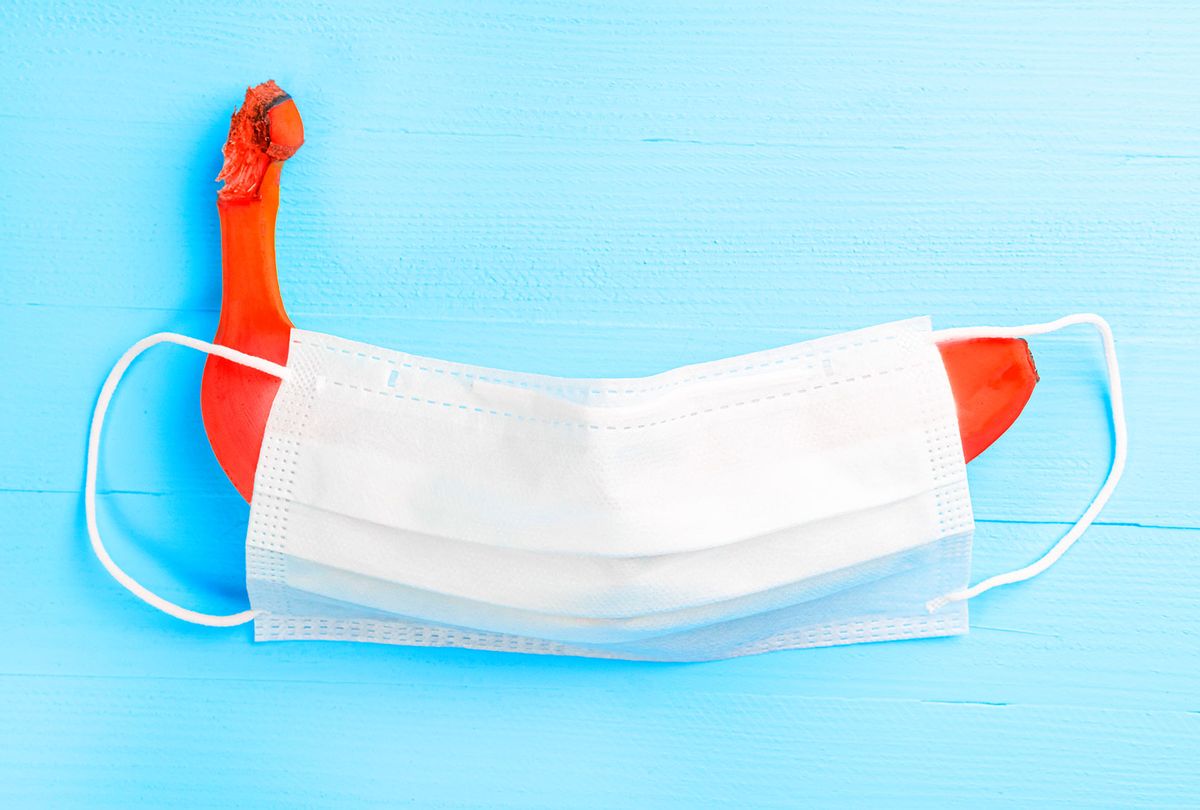Despite the common sense science around mask-wearing to fight spread of SARS-CoV-2, many right-wingers have rejected public health advice regarding donning a mask in public. Interestingly, at least one study last year suggested that this aversion was related to fear of emasculation.
It is ironic, then, that a growing body of evidence suggests that COVID-19 could damage one's ability to maintain an erection.
Indeed, two recent scientific papers from different continents had similar conclusions in spotting a connection between erectile dysfunction and COVID-19.
First, the aptly-named scientific paper "Mask up to keep it up," which was published by the journal Andrology two months ago. Its authors predicted that there would be a correlation between COVID-19 cases and erectile dysfunction (ED) for several reasons: first, that COVID-19 damages the cardiovascular system and therefore could be linked to blood vessel diseases which result in erectile issues. Second, both ED and COVID-19 also tended to be more severe and more prevalent in men with diabetes, hypertension and obesity.
Want more health and science stories in your inbox? Subscribe to Salon's weekly newsletter The Vulgar Scientist.
After studying Italian men who had developed SARS-CoV-2 infections, the researchers concluded that "there is preliminary evidence in a real-life population of ED as a risk factor of developing COVID-19 and possibly occurring as a consequence of COVID-19." The researchers urged, among other things, wearing personal protective equipment like masks.
Now a new study in the "World Journal of Men's Health" reveals that COVID-19 can remain in penile tissue long after male victims recover from the worst symptoms of their illness. When COVID-19 infections cause a blood vessel dysfunction known as endothelial dysfunction, it can damage the tissues that receive their blood supply from the malfunctioning small vessels. That, in turn, means that the penis may not be able to get erect if it has been infected with COVID-19.
Researchers from the University of Miami Miller School of Medicine say that their study found men who previously did not suffer from erectile dysfunction but developed it severely after their COVID-19 infection.
"This suggests that men who develop COVID-19 infection should be aware that erectile dysfunction could be an adverse effect of the virus, and they should go to a physician if they develop ED symptoms," study author Ranjith Ramasamy, M.D., associate professor and director of the Miller School's Reproductive Urology Program, told Eurekalert.
The scientists examined penile tissue from four men who suffer from ED (they were undergoing a prosthesis surgery), with two of those men having previously developed COVID-19 and two of them having no history with the virus. They found COVID-19 and signs of endothelial dysfunction in both of the men who had suffered from COVID-19 but not in those who did not. Based on that, the scientists hypothesize that men with COVID-19 could develop erectile dysfunction due to endothelial dysfunction, and that one reason could be the presence of the SARS-CoV-2 virus in the penile tissue itself. Though a small study, the findings were quite telling and fit with previous predictions.
This is not the only way in which COVID-19 damages multiple organ systems. A study last month revealed that roughly one-third of COVID-19 patients had developed either psychiatric or neurological issues, suggesting that millions of Americans could have mental health issues down the road. COVID-19 has also been linked to blood clots and other cardiovascular issues. The disease can affect the liver and the kidneys. Some COVID-19 patients suffer disabilities like losing the ability to smell, either permanently or temporarily. It can also lead to a range of persistent health issues that may ultimately kill infected individuals long after the initial symptoms wear off.

Shares